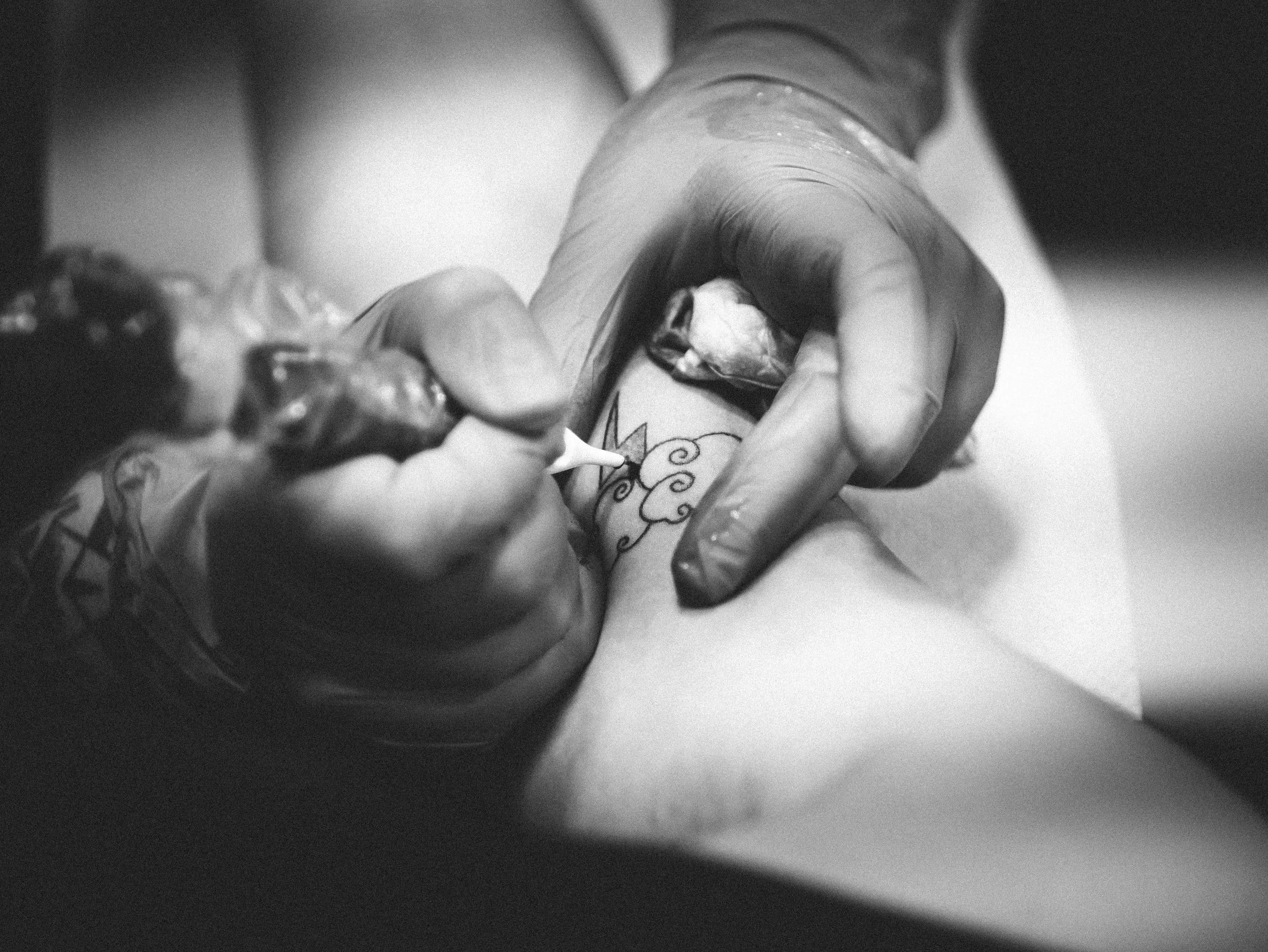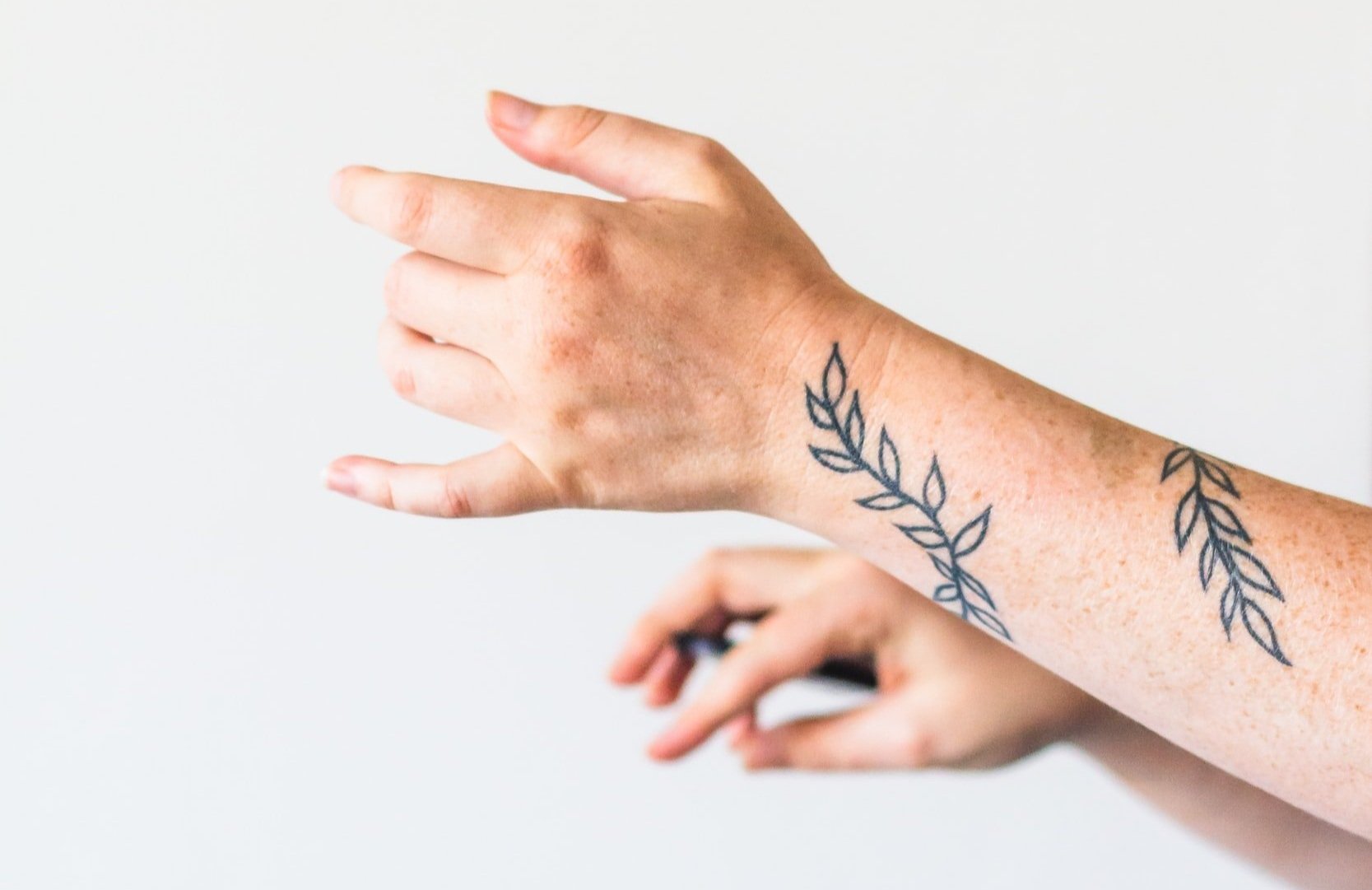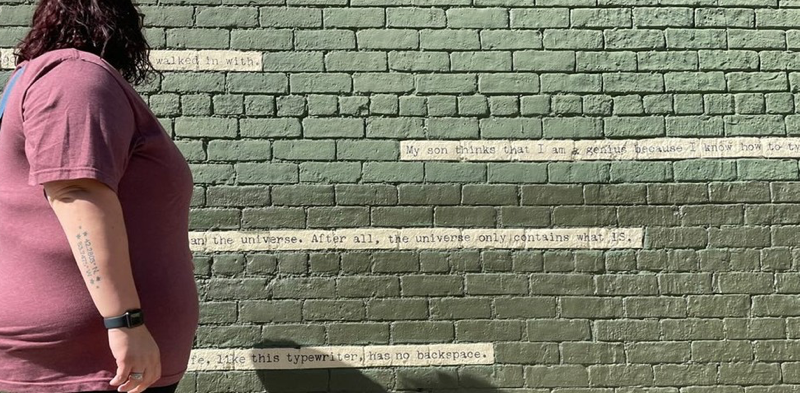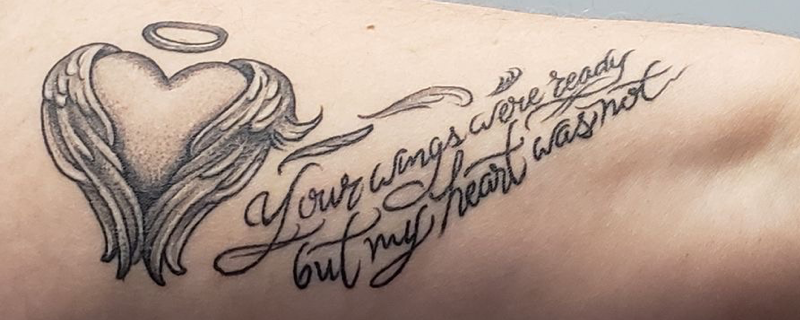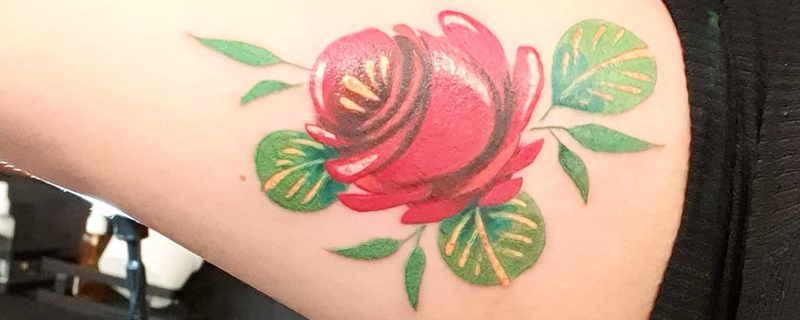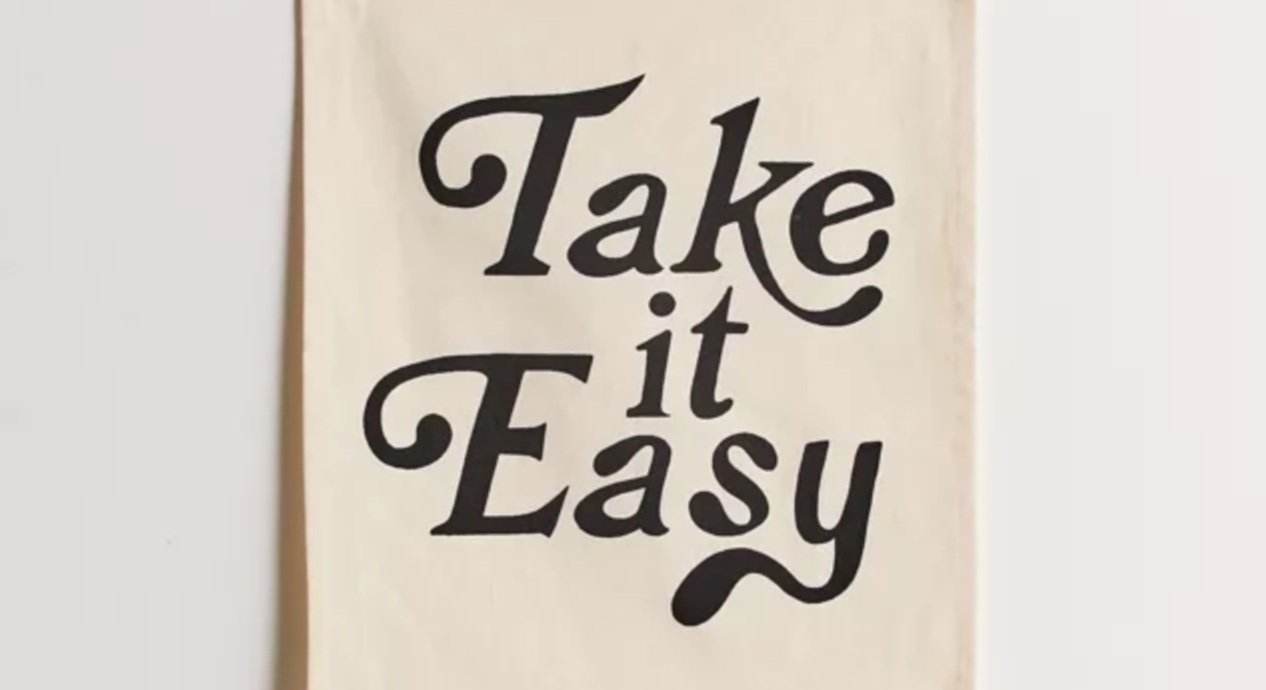Letters from a widowed husband, via Quora
One man’s way of dealing with the loss of his wife and sharing her life in the process.
Photo: Trinity Treft
This content was originally posted on Quora by user Jay Johnson, in response to the question “Have you ever done something useful with your grief?”
My first wife died suddenly early one morning. I chronicled her death in answer to [another Quora Question].
When she died, I owned my own IT consulting company. After her death, every morning, I drove my 10-year-old son to school. My 14-year-old daughter had a friend that was 16, had her license, and would drive my daughter to school (they went to the same school).
Once I dropped my son off, I went to my office. All day, every day, I just sat at my desk. I couldn’t do anything. When it was time, I picked up my son and went home.
This went on for weeks.
I finally decided I needed to do something — anything. But what could I do?
I had an idea.
My wife and I had a large extended family and a very broad circle of friends. So? I decided I would write to each and every one of them. I could tell them about how that person’s or couple’s relationship with my wife was so meaningful.
So I wrote. The postal letters were long. As I finished each letter and mailed it, I felt relief. Each letter was an acknowledgment of the relationship, with a full stop — time to move on.
The people who received these letters were extremely grateful, and I know the letters helped them to come to terms with their own grief.
I can’t say how many letters I wrote, but this process went on for a few (or several) weeks.
Finally, I could think of no one else to write to.
And finally, my mind and emotions were cleared enough such that I was able to effectively return to work.
Community advice on getting memorial tattoos
Getting a tattoo can be a beautiful way to pay homage, but it’s also a big commitment, and a few followers reached out wanting to know if there were any tips or bits of advice to share with someone considering getting inked. Here’s what the community had to say.
Photo: Sincerely Media
We recently shared a post with Grief Collective follower stories about tattoos they’ve gotten in memoriam of someone they’ve lost. Getting a tattoo can be a beautiful way to pay homage, but it’s also a big commitment, and a few followers reached out wanting to know if there were any tips or bits of advice to share with someone considering getting inked.
Here’s what the community had to say.
Think on it for a while.
“Grief can be so fickle,” one community member wrote. People often say not to make big life changes within the first year of a loss, and while a tattoo may not fall into that category (depending where you get it!) it’s still a big and permanent decision. Only you can decide what’s right for you, but it never hurts to take your time and make sure it’s a decision you’ll feel good about years down the line. It may even take a while to figure out what the right words or images are to remember that person. As other community members shared, there’s no rush.
Research your artist to find the right person.
Finding an artist whose style you like and who has availability can take time. You can research most artists online through tattoo shop websites or the artist’s social media accounts. Look through their work — does their style match your aesthetic? Do they specialize in a certain style? Familiarize yourself with different styles to get a sense of what you like and find artists who match that style. Another good reminder — great artists will usually charge accordingly, so be prepared in your budget. As one community member shared, “quality is an investment,” and when it comes to permanent art on your body, it doesn’t hurt to invest more.
Have the story down.
Often when people get tattoos, the art is symbolic rather than literal. If the tattoo is going to be on a visible place you can expect people to ask about its meaning. When it comes to something as personal as a loss, one community member recommended having a response ready to go — for times you want to share and times you don’t. This can help you control how open you want to be with your story, and it may also be a good litmus test before you get a tattoo of how you expect to talk about it.
Don’t slack on the aftercare.
Getting a tattoo can be an exhilarating endeavor, but it’s not finished the second you leave the chair. There are important aftercare steps for tattoos to ensure that they heal properly, and if you don’t follow them it can be bad for the longevity of the tattoo and…well, your health. Your tattoo artist will give you do’s and don’t’s (e.g. do use clean sheets; don’t hot tub or shave), and it’s important to follow them. Some even say it’s the most important step of getting a tattoo.
Do it.*
Resoundingly, for all the tips and advice in the community shared about getting tattooed, the most common one was: go for it. Of the community members who reached out, many had positive stories to share of getting tattooed to remember their lost loved one. The post sharing 6 memorial tattoos also shows it can be a beautiful tribute - if you’re someone looking to decide.
*Grief Collective is not recommending anyone get tattooed. Tattoos aren’t for everyone, and it’s okay if that isn’t how you choose to honor your loss. This post reflects sentiments from the community who was asked for advice specific to this topic.
6 community member memorial tattoos
A collection of Grief Collective follower stories about tattoos they’ve gotten to honor someone they’ve lost.
Photo: Sincerely Media
Tattoos have become increasingly popular in the past few decades, running the gamut from artistic expression to commemoration of life events big and small. Inspired by this recent Cup of Jo post (a beautiful and short read), here’s a collection of Grief Collective follower stories about tattoos they’ve gotten to honor someone they’ve lost. Thank you to those of you who submitted your stories.
Next up: community advice if you’re considering a grief- or loss-related tattoo.
This tattoo on my forearm is the coordinates of our favorite bookstore. The wall outside of it, that I’m standing in front of here, has saying painted in a typewriter font. One says “I walked in expecting to fall in love with the books, not the person I walked in with” and “I know who I’m going to marry someday.” We spend a lot of time here, became “official” here, said I love you for the first time here and I proposed to her in front of this wall (5 years ago today). It became more than a bookstore to us and now, it’s a place I go and feel comfort like we are together on a date all over again. The stars around it are from the Harry Potter books and the coordinates are done in typewriter font. People always look at me a bit funny when I say it’s to a bookstore when they ask about the coordinates, but it’s so special to me. - Katie
It says “the colors of the after.” It’s a metaphor. The life after my dad died has other colors because grief changes you. Sometimes it is full of grays and sometimes it is full of all the happy colors. My dad is on the gray ones but also in the happy ones, because he is everywhere. He was 57 when he died in 2021 and I was 23. - Noe, @noeliabp19
Mason is my only child. We had been talking about getting our first tattoos together for some time. When he was killed in a car accident at 20 years old in April 2019, I knew that I would follow through to honor him. My first, done just a few months later, simply states the reality of my feelings with his wings holding my broken heart. Mason believed in the magic a dreamcatcher holds. My second tattoo showcases that magic with an image of his eye looking over my life, knowing that he walks with me forever. - Melissa
I lost my dad in 2018. I had this tattoo in remembrance of the last time he told me he loved me. - Sarah
My dad’s passion was canal boating. He fulfilled his dream and ended up owning a custom made one that he and my mum spent months of the year on traveling the UK via the waterways. I spent many a day (and night) joining them on some of their adventures and have so many precious memories of the boat with him. I got one of the traditional hand painted roses that was on his boat tattooed on me. - Helen
I got [a tattoo] on my late boyfriend’s birthday weekend after he passed of his birth month flower. A morning glory. Single line, dainty and perfect. So happy I did it! Also the same spot he had one. September is the month. It’s under my left arm on my rib cage so it’s close to my heart too. - Bergie
The dark-humored side of grief, with Karen Kilgariff
Karen Kilgariff, a writer and comedian most recently known for co-hosting the podcast My Favorite Murder, lost her mom to Alzheimers in 2016 after a 12-year battle and shares about it in a podcast.
Photo: John Towner
Karen Kilgariff, a writer and comedian most recently known for co-hosting the podcast My Favorite Murder, lost her mom to Alzheimers in 2016 after a 12-year battle. She shares about her experience in a podcast conversation with her friend Chris Garcia. You can listen to the full episode below.
Later in the episode, she shares about how she and her sister navigated their mom’s disease and some of the sisterly dark humor that emerged amid the tragic circumstances. The clip starts around the 17:00 and goes until 19:15. It’s also transcribed below.
Karen: [My sister and I] talk to each other pretty much every day, and she's my best friend. But during my mom being sick there was just so much tension and there's so much anxiety and — there was so much to manage at one time, and as we lost my mom more and more we would tell each other.
Like the first time I had the experience where I was trying to put mom to bed and she fought me and I yelled at her and then I scared her and she kind of went like, "I'm sorry. I'm sorry," and apologized to me, and then I couldn't stop crying because it was so awful.
[Laughs] This is like gallows humor, like crazy. But one night my sister came to get me and that had happened and it was really bad and I had to tell my sister because I felt like I'd done that so badly and that was like I yelled at our sick mom - what's wrong with me? [Laughs]
And my sister goes, "Are you fucking kidding me? I do it every time."
And I was like, "Wait, what?!"
She goes, "She drives you crazy! Of course you yell at her." And I was like, l felt like I was like borderline elder abuse, how mad I got.
And she goes, "Yeah, she makes you that mad. That what we're all doing all the time."
Then I said, in the middle of really bad sobbing, I just go, "I just want her to die.” I said it so dramatically of like, can you believe I'm even saying this?
And my sister goes ,"Oh please, you don't think I think about spiking her shit with Abilify every time I go over there?"
[…] In the middle of crying she said that and then we both were laughing so hard, where it's like…this is a nightmare. [Laughs]
The full transcript of the podcast episode can be found here.
The power of rest
Especially in grief, prioritizing rest is vital to wellbeing.
Often in our busy world, there is pressure to go nonstop. We pack our schedules, we over-commit, we power through. In a culture that values productivity, taking a break can sometimes feel bad - even wrong - but the truth is that prioritizing rest is vital to our wellbeing.
Have you ever heard the phrase “rest and digest”? This phrase is used to describe the state when the parasympathetic nervous system is engaged. It’s the state when we are physically calm - our stress hormones (cortisol) are reduced, our heart rate is normal, our digestion is stabilized. It’s the opposite of the sympathetic nervous system, which we commonly know as the feeling of fight or flight, a heightened state brought on with stress. We want to spend as much time as we can in the Rest & Digest state, but it can be a challenge in our modern world. Stress can come in many different forms too - the Holmes-Rahe Stress Inventory includes a range of common life stressors that you might not even realize are stressful, from getting a parking ticket to getting a promotion to vacation. It’s important to acknowledge the many small stressors in our daily lives because they can all contribute to a constant underlying state of unrest.
Unsurprisingly, loss has a high stress score on the Holmes-Rahe scale. Grief not only brings about sadness but it also comes with stress. Rest can feel extra-challenging for some in grief because it’s often the time when feelings emerge, and that can feel overwhelming. We may use busyness to avoid the big feelings, but in doing so we are also avoiding an opportunity for our bodies to come down from the cortisol rush, which can leave us feeling more exhausted and emotionally bottled. This can sometimes lead to an even bigger crash later.
Of course, coping through busyness and avoidance is not altogether unhealthy. Grief is hard. Sometimes we just want to push the hard feelings away, and that’s okay. But because grief is hard, it’s important to also prioritize taking care of yourself, and rest is a critical part of that equation.
Rest can come in many forms. It can be as simple as a ten-minute break to do some deep breathing or stretching. It can be sipping coffee quietly alone or jotting a few notes in a journal. It can be taking a bath or a nap. In moments of rest, think about slowing down your breath and feeling your feet on the ground. Relax your shoulders. Put your hand on your heart and feel it beating. Even for a few moments, slow down.
You are doing the hardest work.
Six pieces of highly autobiographical bereavement advice
Creative writing piece, originally posted by Mae Rice on McSweeny’s, September 26, 2012
Originally posted by Mae Rice on McSweeny’s, September 26, 2012
1. What to Do When Your Mom’s Death Certificate Incorrectly Lists Her as Chicano
“My god, how embarrassing that we would mistake her for Chicano,” the lady at the funeral home will say, in a way that suggests she either hates Chicano people or thinks you do. You will want to clarify that this is not about Chicano people being famously awful, or famously immortal, but just about accurate government records. Even if you tell her you are a Chicano supremacist, though, she will keep muttering “Chicano” to herself like a remorseful house elf. Let it go.
2. How to Tell People Your Mom Died
You will sometimes want to minimize the problem by comparing it to more serious problems, as in, “She died, but at least apartheid is over.” Other times, you will want to downplay the news via hesitant questions—“I think my mom is like… dead?”—which can elicit responses such as, “Have you tried calling her cell phone?” Even when you send a group email to your closest friends, announcing her death, you might sign off with, “Thanks for your support during this shitshow,” because “shitshow” is a fun, casual word for a fun, casual death. It is better to tell people in a simple, declarative sentence, though.
3. How to Find an Outfit For Your Mom’s Service
You will buy a black sheath dress that hits above the knee, and you and your dad will wonder whether it is slutty. Your mom would know, but you are too young to have been to many funerals, and your dad only knows about fashions from the men’s department at Costco. You will call your friend Alice for a second opinion, which is actually a first opinion because you and your dad shared the non-opinion of “huh.” You will eventually return the sheath, to be safe; ideally, you will replace it with a knee-length skirt.
At your mom’s service, a single-file line of people will hug you and whisper, “I’m sorry for your loss,” until you reach Alice’s mom. She will instead whisper, “You don’t look slutty at all!” Although you are at a memorial service, you should feel free to high-five her. She is awesome.
4. What to Do With Your Mom’s Ceramic Birds
Loving your mom and loving the tiny ceramic birds she ordered online from her hospital bed are two separate things. This is especially true of the last one she ordered, which will arrive in the mail after her death. It will be roughly the size of a golf ball, and it will be glued to a hairclip.
Do not incorporate the surprisingly heavy bird into your only hairstyle (a look somewhere in between “bedhead” and “meth user”). You can just give the bird to your friend’s dog with bangs. It will look very festive on the dog.
5. What to Do When You Want to Play the Dead Mom Card
Don’t. Playing the dead mom card to win an argument—unless the argument is about what your mom has been up to lately—is like playing the Hitler card. There is always a gentler way. When you want to say “omelets were Hitler’s favorite food,” or “my mom liked omelets, and then she died,” just say what you mean. You don’t want an omelet.
6. What to Do When It is Mother’s Day
You will worry that people will approach you on the street—because you are not with your mom or on the phone saying, "You are my mom!”—to heckle you. “No mom today, huh?” and “What day do you think it is, Labor Day?” and “Cat got your mom?” are all questions you will have nightmares about. Luckily, people never say these things. You can go outside on Mother’s Day. It will be fine.


